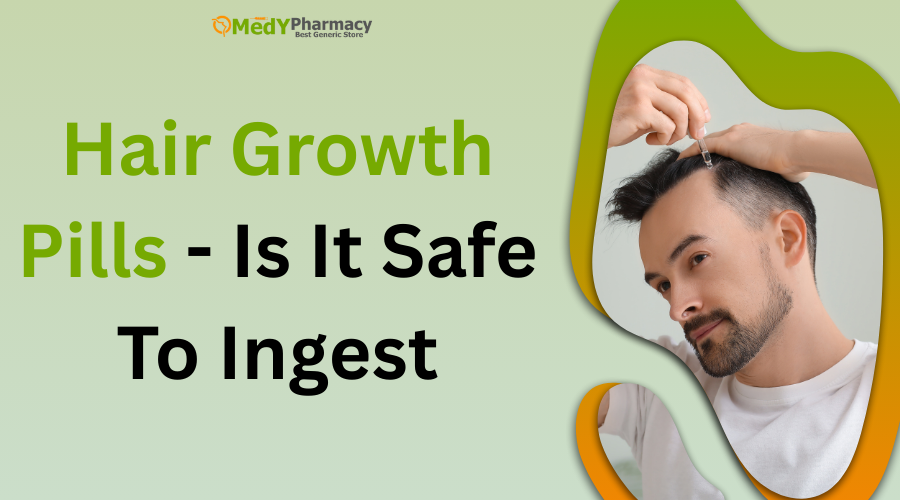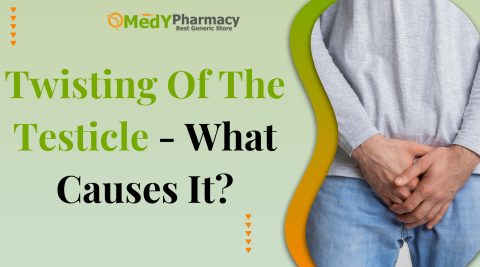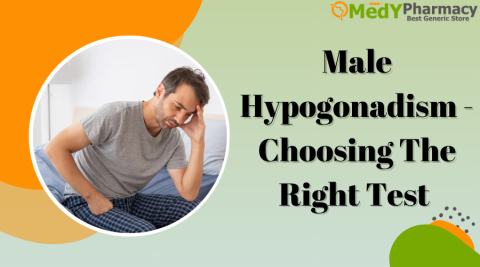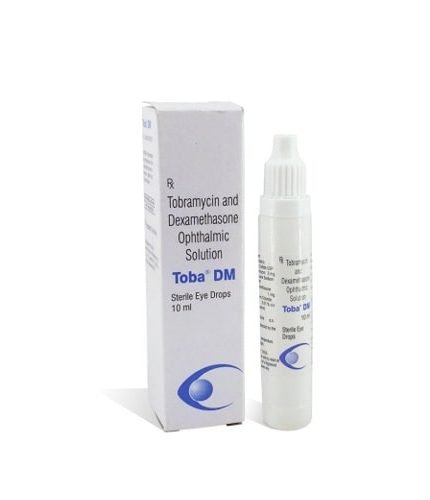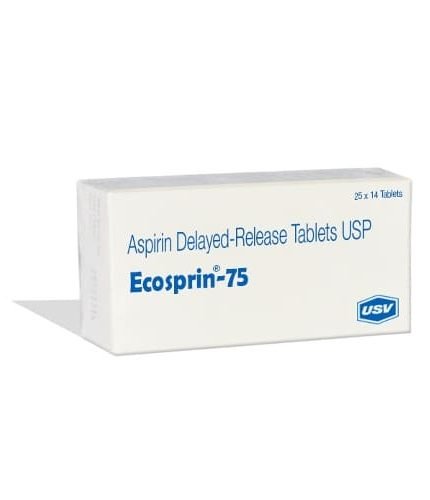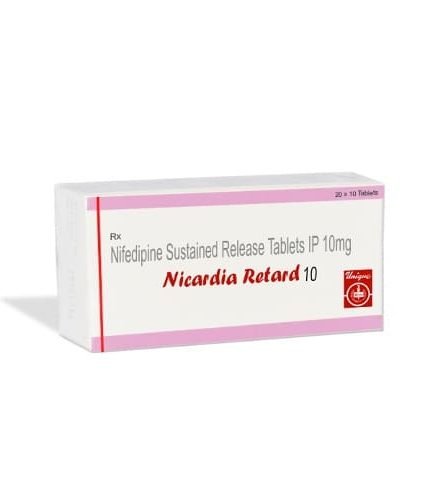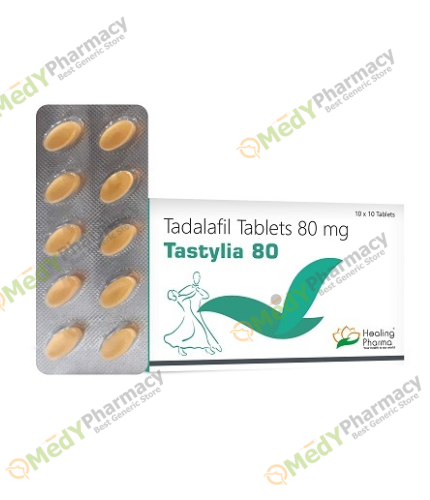Introduction:
Male and female hair loss issues are common and are influenced by several variables, such as hormone levels, age, diet, stress, and heredity. Signs include dryness, lack of development, brittleness, dullness, and thin, unhealthy hair, among other health problems. Your hair might get stronger and healthier if you acquire a lot of these essential components.
These commercially available tablets indicate that they are effective and support your hair, but when it comes time to use them, you discover that they are ineffective and do not function as intended. Taking them, however, might strengthen your hair’s roots from the inside out at that point.
Interactions between these tablets and prescription drugs are another issue. Some herbal ingredients, such as saw palmetto, might alter hormone levels, so those with certain medical problems or those on hormone-related drugs might not want to use them.
This means that before beginning any supplement, especially for people with pre-existing problems, it is imperative to speak with a healthcare professional.
Although they can help maintain healthy hair, vitamins cannot stop hair loss. Other important factors include food, stress, hormone fluctuations, and heredity.
Thus, stress reduction, a healthy diet, and good hair care are all essential for encouraging healthy hair development.
What Is Hair Growth?
This is the normal process by which hair strands grow and extend from skin follicles, mostly at the scalp. A follicle is a microscopic sac-like structure located under the skin’s surface from which each hair strand develops. These follicles generate new cells that push up through the skin as hair after hardening.
Age, hormones, food, general health, and heredity are some of the variables that affect hair development.
Reduced hair growth or greater hair loss may be experienced by those who have a family history of baldness or hair thinning. Menopause and pregnancy-related hormonal changes can also affect the hair cycle.
A good diet is essential for keeping hair healthy. Slow growth, weaker hair, or even hair loss might result from a lack of essential minerals.
This is also influenced by hair care practices and environmental variables. Hair breakage or thinning can result from excessive use of heat styling products, harsh chemicals, or tight hairstyles. The best conditions for hair development depend on a healthy scalp environment.
The biological mechanism in question is intricate and subject to both internal and external influences. Knowing how it functions and what supports it can help people make better decisions for keeping their hair strong and healthy.
Hair Growth Supplements
These are nutritional items used to promote healthy hair, stop hair loss, and encourage the development of new hair. The vitamins, minerals, amino acids, and botanical extracts that are usually included in these supplements support the hair follicles from the inside out.
Biotin, vitamin D, zinc, iron, collagen, and saw palmetto are common nutrients that promote the natural hair development cycle and strengthen hair in different ways.
The science behind this is mostly predicated on the knowledge that hair loss or thinning can result from nutritional deficits.
The aim of giving the body these vital nutrients is to bring it back into balance and provide the ideal environment for healthier, thicker, and stronger hair growth.
Results might vary greatly depending on the underlying reason for hair loss, even though many people claim considerable benefits after using these supplements consistently.
Supplements might not provide noticeable effects if hair loss is caused by genetics or hormonal imbalances; instead, they might work better in conjunction with conventional therapies like minoxidil or finasteride.
On the other hand, supplements may provide more obvious advantages if hair loss is caused by stress, poor nutrition, or postpartum rebound.
Customers should seek goods that have undergone purity and safety testing, and preferably those that are made using components that have been the subject of clinical research.
Before beginning a new supplement, people with medical issues or those on prescription drugs should speak with a healthcare provider since certain substances may interfere.
Three Major Stages Make Up the Hair Growth Cycle
Comprehending these phases is crucial for identifying typical hair loss and managing hair loss issues.
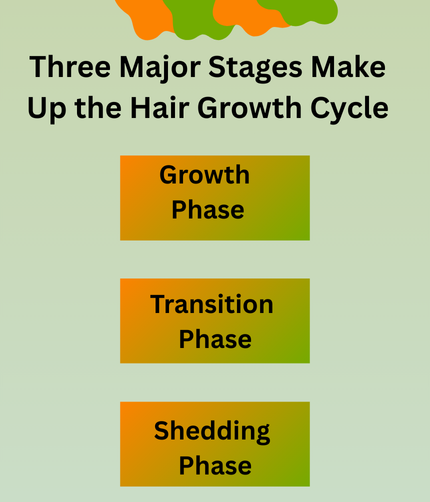
- Growth Phase
Continuous hair growth results from the active production of new cells by hair follicles throughout this period.
Your hair grows longer throughout this phase, which can last anywhere from 2 to 7 years, depending on your general health and genetic makeup.
During the anagen phase, hair strands are deeply anchored in the scalp and are supplied with an abundant amount of oxygen and nutrients by the blood vessels. Strong, thick, and healthy hair growth is facilitated by these nutrients. Naturally, those with longer anagen phases tend to have longer hair.
The fact that the majority of your hair is growing rather than falling out indicates that your follicles are healthy and that you are getting enough nutrients.
- Transition Phase
The second stage of the hair development cycle is called the transition phase, or catagen phase.
The hair does not come out right away, even if it is no longer growing, because it is still rooted in the follicle.
The hair follicle can relax and get ready for the following step of the cycle at this crucial time.
- Shedding Phase
Often referred to as the telogen phase, the shedding phase is the last step of the hair development cycle. The average duration of this period is three to four months.
New hair grows below the old hair, which is normally lost after the telogen period. 50 to 100 hairs per day is common at this period, and most individuals don’t notice the shedding until it gets out of control.
The cycle restarts when the hair follicle returns to the anagen phase following the completion of shedding.
Are Hair Growth Pills Effective?
Some people may find results with this, but it primarily depends on the underlying reason for hair loss and the quality of the supplement being used.
Usually made up of a combination of vitamins, minerals, amino acids, and herbal extracts, these tablets are intended to promote hair health, fortify follicles, and stimulate new hair growth. However, they might not be effective for everyone and are not a one-size-fits-all treatment.
This can be quite helpful for those who are losing hair due to nutritional inadequacies. Hair loss or thinning may result from deficiencies in iron, zinc, or biotin; restoring hair growth may be possible with supplements of these elements.
The strength and thickness of hair may be considerably increased by using hair growth tablets if the loss of hair is caused by a deficiency in vital vitamins or minerals.
Although they might not be able to address the root problem, hair growth supplements may be able to promote the health of the hair in certain situations. The FDA-approved hair loss medications finasteride and minoxidil could work better for these kinds of issues.
Also, it’s important to keep in mind that individual outcomes may differ. In a matter of months, some people could experience an improvement in the thickness and growth of their hair, while others might not. Using supplements requires patience and consistency because hair development is a gradual process.
To verify that a supplement is suitable for your particular requirements and health problems, it is best to speak with a healthcare provider before beginning any new supplement. Finax 1, Fincar 5, and Finpecia 1 are the greatest medications for hair growth.
When Can I Expect to Get Benefits from Taking Hair Growth Pills?
Several factors, such as the underlying reason for hair loss, the quality of the supplement, and how consistently you take it, might affect how long it takes to see results from using this. Here is a broad outline of what to anticipate, though:
- Initial Results to 3 Months
Most people may need to use the product consistently for one to three months before they see any changes. During this period, hair growth tablets address any nutritional inadequacies that may already be contributing to your hair’s increased strength and general health. However, some people may only notice little changes, including less hair loss or better scalp health, and early outcomes might not be noticeable.
- Visible Hair Growth to 6 Months
You can notice new hair growth after three to six months if the hair growth tablets are doing their job. Better thickness or tiny newborn hairs might be the result. At this point, your hair’s volume and texture may start to improve, though others might not see it completely just yet.
- Optimal Results to 12 Months
It usually takes six to twelve months for the full advantages of these medications to become apparent. You should see stronger, thicker hair by this point, and in certain situations, a more pronounced decrease in hair loss. It is a slow process, and the quality and density of hair will increase with repeated use. It may take some time for the supplement’s full potential to materialise.
Can I Use Other Meds With Hair Growth Pills?
In many situations, you may use hair growth tablets with other prescriptions. However, you should exercise caution and speak with your doctor before doing so.
As certain supplements may affect the effectiveness or absorption of these therapies, it is always advisable to see a physician.
Some of the ingredients in hair growth tablets may make bleeding more likely if you are on blood thinners or other drugs for heart problems.
To be sure there are no drug interactions with your current prescriptions, you must see your doctor.
Patterns of hair development may be influenced by hormonal therapy. This may have an impact on hormonal balance if you’re on birth control pills or levothyroxine for thyroid abnormalities.
It’s crucial to talk to your doctor about these supplements if you are on hormonal therapy since they contain botanical compounds like saw palmetto, which may have modest effects on hormone balance.
To prevent taking too many supplements or experiencing adverse drug interactions, make sure to let your doctor know about all the drugs and supplements you are taking.
Your doctor can assess any possible interactions and make sure that the drugs and supplements you take together are safe for your particular medical condition.
Additionally, they can assist you in tracking your progress and, if required, modifying your therapy.
What Components Are Often Present In Hair Growth Pills?
These ingredients are usually picked because they can help nourish hair follicles, keep the environment around the scalp healthy, and help with common nutritional deficiencies that can cause hair loss.
- Biotin
Biotin, a water-soluble vitamin that is essential for the synthesis of keratin, the protein that builds up hair, is one of the most widely found compounds in hair development supplements. In addition to strengthening hair, biotin may enhance its thickness and texture.
Since a lack of biotin is frequently linked to hair loss or thinning, it is frequently seen in hair development supplements. Additionally, biotin promotes the general well-being of the scalp, which is necessary for hair development.
- Zinc
An important trace mineral for sustaining a healthy scalp and encouraging hair development is zinc. It aids in the synthesis of proteins and enzymes necessary for the health of hair follicles and has the ability to control hormone levels that impact hair development.
A zinc deficiency can cause hair thinning or shedding since zinc is known to help with hair tissue regeneration and repair.
For those who may not obtain enough zinc from their diet, adding zinc to hair growth supplements helps guarantee that the hair development cycle operates as it should.
- Iron
Iron-deficiency Anaemia and other disorders are caused by iron deficiency, which is a major cause of hair loss, especially in women.
Excessive shedding or thinning hair may follow from this. To improve the overall process of hair development, iron-rich vitamins can help address these shortages and encourage the healthy operation of the scalp and hair follicles.
- Vitamin D
Hair follicle health depends on vitamin D. Both the formation of new hair follicles and the regulation of the hair growth cycle are aided by it. Because it is thought to promote the regeneration of hair follicles, vitamin D is an essential component of hair growth supplements.
Many individuals, particularly those who reside in places with little sunlight, are vitamin D deficient; thus, taking supplements is crucial for both general health and hair development.
- Collagen
It gives you the amino acids you need to make hair, especially glycine and proline, which help make keratin.
Collagen promotes skin moisture and suppleness, which further contributes to the scalp’s overall health. To promote stronger hair and enhance the general health of the scalp and follicles, this substance is frequently used in hair development supplements.
These supplements also include omega-3 fatty acids, folic acid, vitamin E, and vitamin A to help protect hair follicles from oxidative damage and to keep the circulation in the scalp healthy.
A healthcare professional should always be consulted before beginning any new supplement, particularly if you are on medication or have underlying medical issues.
Selecting supplements with premium, thoroughly studied components is crucial to ensuring effectiveness and preventing undesirable side effects.
- Saw Palmetto
Many hair growth supplements contain saw palmetto, a well-known natural ingredient. It is thought to prevent DHT, a hormone associated with hair loss, from being produced, especially in androgenetic alopecia.
Saw palmetto is believed to help sustain hair development by stopping DHT from causing hair follicles to shrink, which can result in hair loss and thinning. Supplements aimed at helping men and women with hormonally associated hair loss frequently contain this extract.
Male Hair Growth Pills
As they age, many men have androgenetic alopecia, which is a prevalent problem. Several male supplements are available to help with this, with the goals of reducing hair loss, promoting hair growth, and enhancing the quality of existing hair.
Finasteride stops hair loss by reducing DHT levels, and it can often encourage the development of new hair.
Some variables, such as the reason for hair loss, the components utilised, and the regularity of supplement usage, affect how beneficial they are for each individual.
In contrast to other therapies like minoxidil or finasteride, which may be more effective in addressing hereditary hair loss, this may assist in treating hair loss brought on by nutritional deficiencies or poor scalp health.
This can be a useful component of a whole hair loss treatment regimen, particularly if used regularly and in conjunction with other medications like finasteride or minoxidil.
A healthcare professional should always be consulted before beginning any new supplement, especially if you are on other drugs or have underlying medical issues.
Can Adverse Effects Occur From Taking Hair Growth Pills?
The vitamins, minerals, and herbal extracts these tablets contain are generally safe for most consumers, but there are some possible negative effects to be mindful of.
In rare instances, large dosages may result in skin rashes or acne, although this is usually safe and well tolerated. Biotin has also been known to cause erroneous values in other laboratory procedures, including thyroid function testing.
- Decreased semen volume, ED, or diminished desire are examples of sexual dysfunction.
- Breast enlargement or discomfort due to hormonal abnormalities.
- Depression and mood fluctuations are examples of mental health impacts; however, they are uncommon.
When using hair growth tablets, it’s crucial to cease using the product and see your doctor right away if you encounter any odd or worrisome symptoms. Your doctor can assist in determining whether the adverse effects are caused by the supplement and, if so, suggest other therapies.
They can have negative consequences, particularly if used excessively or in conjunction with certain pre-existing diseases, but they can also be helpful for many people.
It’s crucial to read labels carefully, take supplements as directed, and consult a healthcare professional before beginning a new supplement regimen.
This might interfere with other drugs you are taking, particularly those for diabetes, blood pressure, or hormone therapy. Your healthcare practitioner should always be consulted before beginning any new supplement regimen.
For Whom Should Hair Growth Tablets Be Avoided?
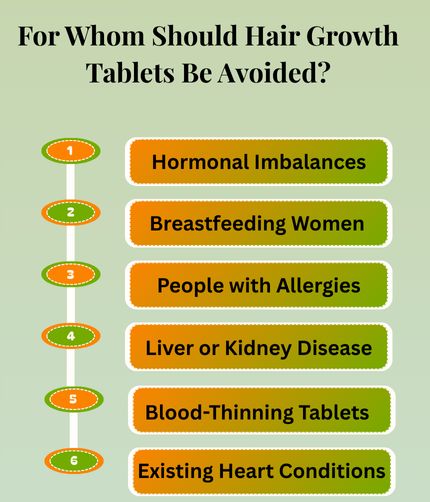
- Hormonal Imbalances
These components have the potential to change hormone levels, exacerbate hormonal imbalances, or interfere with medications used to treat these disorders.
The herbal extract saw palmetto is well-known for its capacity to inhibit DHT, but it may also alter testosterone levels and upset the balance of hormones; therefore, it is not recommended for those with hormone-sensitive disorders.
- Breastfeeding Women
Because they can have hormonal effects, certain of the substances included in hair growth medications, such as finasteride, saw palmetto, or minoxidil, should not be used while pregnant or nursing. These substances may have negative effects on milk production or the growing fetus.
Unless prescribed by a healthcare professional, it is always preferable for women who are pregnant, nursing, or want to become pregnant to refrain from using hair growth supplements.
- People with Allergies
In sensitive people, some herbal components, vitamins, or minerals may trigger allergic responses. Saw palmetto and fish oils, for instance, might trigger allergic reactions that result in swelling, rashes, or hives.
If you are known to be allergic to any of the substances in the supplement, you should not take those tablets or ask your doctor about other options.
- Liver or Kidney Disease
Iron, zinc, and vitamin A are a few of the vitamins and minerals included in hair growth supplements that can be dangerous in excess and can overwhelm the liver or kidneys, particularly if these organs are already damaged.
It’s crucial to see your doctor before beginning any supplements if you have a liver or kidney issue, since they may make it worse or interfere with prescription drugs.
- Blood-Thinning Tablets
Vitamin E, fish oil, and saw palmetto are among the substances in hair growth tablets that can thin the blood. If you are on blood-clotting drugs like aspirin or warfarin, taking these supplements may raise your risk of bleeding or result in unfavourable side effects.
Always get medical advice before beginning hair growth drugs if you are using blood thinners.
- Existing Heart Conditions
Oral usage of this medication containing minoxidil may result in heart-related adverse effects such as palpitations, lightheadedness, or elevated heart rate. For those who already have cardiac issues like high blood pressure or heart disease, this is very troubling.
Consult your doctor before using hair growth medications that include minoxidil or other comparable compounds if you have cardiovascular problems.
Is It Safe To Consume Hair Growth Pills?
Healthy hair development depends on these nutrients, but an excess of them can be harmful and result in problems like nausea or renal difficulties.
Always look for ingredients that could interfere with other drugs you’re taking or that might cause allergies.
Dizziness or headaches, especially if you’re on blood pressure-lowering medications.
Consult a healthcare professional and cease taking the tablets if you encounter any negative effects.
This might cause stress to these organs if taken in excess; therefore, it’s important to take them as prescribed by a doctor.
Certain components, such as fish oil or vitamin E, may thin the blood, and supplements containing zinc and iron may make it more difficult for some drugs or antibiotics to be absorbed.
Always consult with your doctor before beginning hair growth tablets if you are on any other drugs to prevent any unintended interactions.
Different brands of hair growth tablets might have quite different levels of quality. The FDA does not monitor dietary supplements as tightly as it does medicines, so it is important to select trustworthy companies with transparent ingredient lists and quality control requirements.
Before beginning any new supplement regimen, especially if you already have health issues, speak with your healthcare professional, pick reliable brands, and take supplements as directed to ensure safety and efficacy.
Supplements for Baldness Hair Growth
Even if you know how to discover baldness pills quickly, there are other options on the market. Once you start taking these medications consistently, baldness will not occur. If your baldness has just started, using the prescription will halt it there.
Additionally, don’t panic if you’re already bald. In addition to protecting your hair and scalp, using these hair growth tablets will help you avoid going bald.
After using these medications promptly, the baldness will entirely disappear, giving you the right tools to quickly stop hair loss. To avoid this situation and achieve rapid hair growth on the scalp, get high-quality baldness tablets.
Many individuals, both men and women, benefit from these special and enchanted tablets, which provide hair with whole health and power.
Although all of the above-mentioned hair development supplements for baldness and hair loss are available, the best place to get hair growth pills is online. Medypharmacy offers cost-effective rates and very affordable hair growth medications thanks to the internet.







